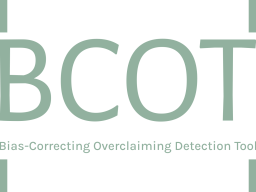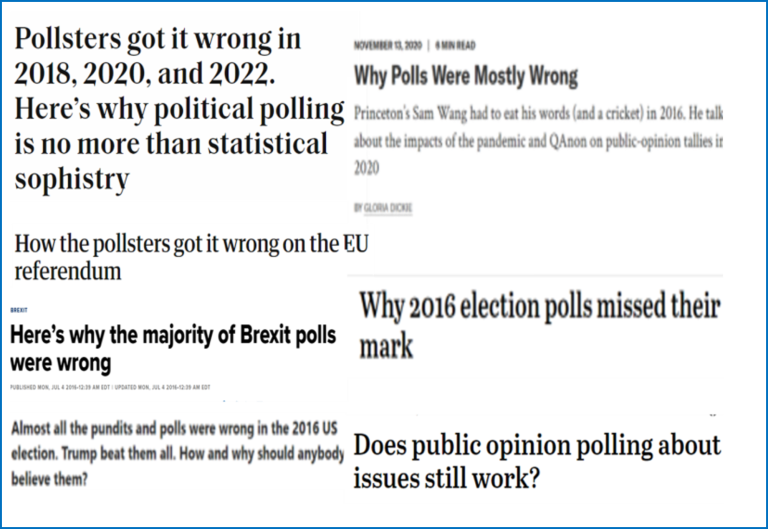
WORLD'S ONLY SOCIAL DESIRIBILTIY BIAS TOOL FOR INTEGRATION IN ATTITUDINAL QUANTITATIVE STUDIES
BCOT® is an adaptable research tool designed to close the attitude-behaviour gap in survey research which has distorted socio-political, ethical sentiment and subsequent behavioural projections.
Ph.D created product that corrects core errors of large studies which are prone to conscious and unconcious social desirability bias reporting which has yielded inaccurate results on topics that define a person's character and their image in society.
The inherent problem is commonly found in research topics on geo-political. socio-economic and ethical behaviour, rooted in the resurgence of the 'consumer citizen' identity.
BCOT is the only tangible technique in the world for integration and implementation.
Backed by scholars | empirically tested and validated in the Doctoral Research
BCOT® is the only research product to successfully provide accurate egoistic 'over-claiming' segmentation within the larger sample population - from political polls to ethical consumer attitudes

BCOT®: A part of awarded ESG Consultancy in strategy and communications.
BCOT® a is product of The Ethical Marketing Doctor (EMD) - an ESG consultancy that integrates breakthrough Ph.D research in ethical communications & behaviour with 15 years of award-winning industry experience. EMD is a division of Brand Hatch Ltd.
Winner of Best ESG Brand Strategy and Communications Consultancy (Global 100 Awards, EMG Publishing, 2023 & 2024). Voted Best Brand Communications Consultancy in London (Media Innovator Awards, 2021, Corporate Vision) and Best SME Brand Strategy Consultancy (Acquisition International, 2020). Best MA/MBA thesis (UK): Green Advertising Effectiveness in the Energy Sector (Worshipful Company of Marketors, 2011). 8 agency-affiliated advertising awards for campaigns across all sectors and media channels (2012-2016).

Proprietary Research Product
Inimitable | 🛇 AI/Automation
Derived from advanced peer-reviewed theory in Psychology, BCOT® the only research theory, activation and implementation in the world. Here is why it cannot be replicated:
- Integration of BCOT® into larger studies (as opposed to siloed Personality Assessment tests)
- BCOT® does not influence the wider survey as it pertains to responding patterns.
- Activation of the data output and findings presentations.
- Original theory and subsequent psychology-based studies provide core guidelines and scientific rigour.
- Thorough qualitative testing and multiple pilots and large scale research is the backbone to unique rules, techniques and bespoke processes by the creator of BCOT®.
- Rigorous testing and augmentation combined with high level knowledge of core common method bias mitigation techniques in the field are used to improve and adapt extant theory in Psychology, coined by Paulhus in 2003.
The creator uses and applies Common-method bias (CMB) mitigation techniques such as instrument biases (i.e. language,) item & personality characteristic artefacts, item context effects, scale type and question ordering (to name a few) to support the overall ambition of unbiased research output.
Each brief requires a bespoke approach and adaptive BCOT® section of 15 items.
This can only be conducted by an expert in the field, and that expert is Dr Joshua Jalloul Ph.D.
WHY IS BCOT® NEEDED?
While most people are familiar with the issues around quantitative (i.e. polls) research - there is has never been a sufficient explanation by the media.
The US 2016 political polling projections created long-lasting effects that live on to this day. This existed beforehand and persists to this day.
Explanations for inaccurate results are often anecdotal and do not address the root problem.
No solution exists... so I created one.
WHAT IS CAUSING IT?
Scholars and researchers in the field have known the reason since 1930s (LaPiere, R. T, 1934) - the problem lies in Response Bias, primarily Social Desirability Bias. In November 2023, this mature field in academia was acknowledged and published in a short a article in Marketing Week by thought-leader, Mark Ritson.
This issue has never been successfully solved; attempts over the last 65 years have failed (Nederhof, 1985) to create a tangible technique that can be used to finally fix a problem that is so pervasive, it casts a shadow over any attitudinal quantitative respondent-based research in socio-political and ESG topics.

THE CONSEQUENCE:
THE ATTITUDE-BEHAVIOUR GAP
The root cause lies in the attitude-behaviour gap and the intent-behaviour gap.
A simple explanation for the discrepancy between predictive behaviour in research and behavioural outcomes is the attitude behaviour gap:
Current studies on people’s predictive behaviour and attitudes are antiquated and no longer considered valid – the problem is referred to as the attitude behaviour gap, and the intent behaviour gap. This is primarily driven by social desirability bias.
The scale of the attitude / intent-behaviour gap is of much debate. The Edelman survey (2017) revealed that over 57% the global population would boycott a brand that didn’t align with their social and political beliefs. In the same year, a YouGov study found that only 21% of UK consumers have boycotted a brand. This is the disparity, or ‘gap’.

THE GAP EXPLAINED
A simple explanation for the discrepancy between predictive behaviour in research and behavioural outcomes is the attitude behaviour gap:
Attitudes can often be used as a form of expression of oneself and if it does not convert to behaviour, it tends to serve the ‘self’, known as conspicuous virtue signalling (Wallace et al, 2020). Consumers’ interaction with brands in social media is an apt example of this - projecting one’s ideal-self without converting to actual behaviour serves to increase well-being and self-esteem (Hollenbeck and Kaikati, 2012; Wallace et al, 2020).
Extant theory proposes that behaviour is accomplished when a consumer-citizen overcomes obstacles and barriers which in turn indicates a higher sense of ethical duty and obligation, therefore transcending self-serving needs which can be accomplished through self-proclaimed attitudes.
The existence of the attitude-behaviour gap is uncontested in academia. We know that using attitude or intent as a proxy for behaviour is a bit like eating soup with a fork and has been out of fashion since the turn of the century.
Whether it is self-reported attitudes or intent, the theory of planned behaviour (Ajzen, 1991) which was based on the premise that said attitudes are a proxy to behaviour, has been disproven and rejected by the academic world for some time. The concern we found is that in quantitative survey methods, there is no tangible replacement – creating a sense of inertia when we review cross-sectional survey results.
Put bluntly, ‘research has not found the relationship between intention and behaviour to be a consistently strong one’ (Hulland and Houston, 2021, pp 437). Academic journals no longer publish studies in people’s ‘intent’ to do something, just their actions. This is because the difference is so big. Many scholars have provided an estimated to the size of the gap. Sheeran and Webb (2016) found that intent converts to behaviour only half of the time. They described the intent-behaviour gap as a road to hell that is ‘well paved’ (pp503).
The gap ethical (ESG) and political research. This is because these issues are reflective of one’s sense of self. Research shows that even if surveys are anonymous and online, respondents are still affected by bias and governed by social norms in their social bubble. be universal. When we consider quantitative polling in these spheres, we see a major problem in the value of published quant research which governs our lives decades after…
Social Desirability Bias
Definition and Mitigation Activation
The tool is the result of the creator's 5 years of doctoral research in SD bias mitigation and 15 years experience conducting/commissioning marketing and government research; creating strategies off the back of their findings.
BRIEF SYNOPSIS
BCOT® can be integrated into any type of research - closing the gap between claimed ‘intent’ and behavioural outcome which causes inaccurate predictive reporting.
THE 'GAP'
A audut of prior survey studies indicate that people's claimed attitude intent in wildly different to their actual behaviour in real life

INTEGRATION
BCOT® is activated by the researcher who adds a section of 15 carefully crafted, unique set of items to a questionnaire which is designed to avoid inducing CMB (influencing respondents' answers of the remaining survey questions which is vital.
ACTIVATION
This section and post survey data analysis technique produces an Exaggeration and Accuracy Index for each respondent is based on the Psychologist Scholar - the Indexes create a segment of 'over-claimers'.

Historical failures to address SD Bias
The deficiency in attempts to correct the biggest problem in socio-economic, political, ESG, & consumer research: why.
SD bias is well documented limitation and concern to social science research (Bradburn et al; 1979; Paulhus, 1984; Podsakoff et al, 2003; Müller and Moshagen, 2019) yet very little has been done to create a valid indicator to control for response bias based on attitudes, values, norms and of course intent. While it is acknowledged as an issue, there is a lot of criticism of the existing mitigation and impact measurement methods.
The greatest minds in social research have noted the issue of SD Bias to research data and finding up until now. This is why several mitigation techniques in the field of research design have been proposed and implemented to mitigate biases (SD Bias is a part of Response Bias which is a branch of Common Method Bias). This research leverages all of them. However, they barely shift the dial and more importantly, they do not measure bias or produce the kind of results and insights that BCOC® does. Still, it should be of comfort to know that these measures are also utilised.
BCOT®
How a Ph.D led to a 90-year-old noted flaw in behavioural research
My doctoral research into the motivations behind ethical consumer boycotting invariably had to address this challenge to research validity. While most accept that results will be ‘off’ as a result of bias and other factors, I looked for solutions
The issue of Social Desirability Bias is known to be the driver of the attitude behaviour and thus, my goal was to find a solution that can be adaptable and used in any research.
My aim was to prove that if the methodology and questionnaire survey was fair, we would find that egoistic motivations are drivers of ethical boycotting, not inhibitors – which was the agreed assumption by the world's authorities on the topic for the last 3 decades.
The creator spent years understanding why SD bias affects research findings and months searching for some kind of academic scale or technique. In the absence of any applicable solution, I invented one which was underpinned by the most respected academic experts in the field.
The doctoral efforts by creator Joshua Jalloul led to an actionable technique underpinned by conceptual frameworks in Psychology. BCOT® developed it into a workable tool that could be integrated into the main research survey
BCOT® BETA TESTING
Results and Insights
My study asked respondents in several different ways whether they have boycotted a product/service on ethical grounds in the last 12 months
Each respondent is given a exaggeration index and are labelled ‘over-claimers’ is the index is above a certain threshold. The threshold is relative to the entire sample. For instance, is the mean index is 0.4, overclaimers would likely be 0.6-1.75. If the mean is 0.3 – the overclaimers are labelled as such if they have an exaggeration index of 0.5+.
Results: Implementation of BCOT®
The total sample of my research is 671 (valid). Of these, 43 were identified as overclaimers (>0.5 exaggeration index) based on the above methodology and proprietary formula that provides indexes. 6.4% of the total sample are overclaimers. The 43 overclaimers contain only 2 respondents who did not engage in ethical consumer boycotting. Of the overclaiming segment, over 95% claimed to have ethically boycotted a product/service in the last twelve months.
In total, 71% of the nationally representative sample claimed to have ethically boycotted a product/service in the last twelve months. When the overclaiming segment is integrated into the wider sample of 671, the 71% becomes 89%! This is the kind of statistical skewness that we want to reduce in quant research.
So, of the overclaimers, almost of them claimed to be ethical consumers who boycott brands/services, which is markedly different to the other respondents. This is empirical proof that the BCOT® WORKS





The activation of BCOT®
The OCT's Exaggeration Index is a large component of the wider research tool
- Identify Overclaimers in your sample
- Give the research company the opportunity to 'data clean’ which means removing said ‘overclaimers’, thereby producing more accurate results for all types of research
- Do a deep dive into the overclaiming segment and follow-up with further research to understand why they responded in this way which may help future research endeavours by the research company or their client.
Contact us any time
HOW BCOT® CAN BE USED
The Process and Output
The client (or research agency) will have a core objective revolving around a particular topic/issue.
As with all quantitative survey research, accurate findings are paramount. The nuts and bolts of the BCOT® methodology are confidential and would be discussed with a client in a consultation. Below is how it is integrated and used.
A series of items are developed based on the brief to be integrated into any questionnaire without affecting results.
The nature of the research requires items that are very nuanced and requires an experienced researcher in this field. This means that item selections are carefully considered – since some may induce respondent bias or induce negative reactions. A great example is researching GOP members. Creating statements that work for them and do not include statements (true or otherwise) that elicit negative emotions which influences respondent answers. This process is bespoken to the brief and when done correctly, garner the best results.
The set of BCOT® 'OCQ' items are adaptable and integrated into the larger research survey. It requires an expert in survey design to avoid Common Method Bias, question ordering and language use as techniques to mitigate said bias.
Through rigorous pretesting, qualitative and quantitative piloting, a number of specific techniques developed by Joshua Jalloul yielded far more accurate and effective items - unique to BCOT® to avoid or reduce biases.
Upon receipt of the collected data by the client, Accuracy and Exaggeration Indexes (EI) are created. The over-claimer threshold is based on the EI, which is calculated by the overall mean.
If desired, BCOT® has the scope to remove ('data clean') or segment 'over-claimers' from the wider sample set. Clients (or their research agency) can receive detailed summaries and insights; or if confidential, it can be provided with the top-line statistics of the sample’s composition as it relates to the BCOT® method with audience segmentation.
The research and BCOT® has no bias toward a cause. To conduct research and analyse data with bias is to render it invalid and prone to dismissal.
DOES THIS APPLY TO YOUR GOALS?
The goal is to put this innovative and unrivalled research tool to use,
making a real change that benefits everyone.
•Whether you are a non-profit political institution or a private enterprise, do you want to know what people really think?
•The sample’s findings can be applied to older survey results for review.
•How big is the attitude-behaviour gap?
•Has your research been gravely affected by the issue of social desirability bias?
WHO IS BCOT® FOR
The technique relies on one’s sense of self, reliance on social norms as it relates to social groups that form their identity and larger groups such as the society, they live in. Finally, and related to the above, it is highly effective when the topic at hand induces ‘image management’ which ladders up to Social Desirability Bias. It is the reason why projections of ethical consumption or political voting is so far off actual figures.
Private Enterprise and Public institutions
Political organisations
Luxury Consumer Brands
ESG/Ethical Consumer Brands or Campaigns
A-political social and environmental institutions
Some examples of public and private institutions which want to know:
- Do my consumers really care about my company’s ESG initiatives based on how we communicate them?
- Are voters answering large scale surveys accurately and how much of their responses are influenced by outside forces
- How would people react to a policy change (domestic, foreign etc)
- As good as people’s intentions are (or want to be), what drives them to behaviour a certain way?
- Based on doctoral research and extensive secondary research dating back decades, what externalities (external forces) affect their answers, and what affect their behavioural outcome? How do external forces affect
- For the first time in global history, a proprietary research tool can help answer these questions. This can often be invaluable and could change the course of history.
About the creator, Joshua Jalloul
Ph.D, AFHEA
After reaching senior management, Joshua left his career in Marketing Communications Planning & Strategy to create his flagship consultancy, Brand Hatch Consultancy and its ESG Strategy and Comms division, The Ethical Marketing Doctor in 2017. He then began his Ph.D in ESG Behavioural Science in 2019.
Behavioural Scientist, published scholar and doctoral researcher created an innovative solution to his own research on ethical boycotting.
Winner of Best ESG Brand Strategy and Communications Consultancy (Global 100 Awards, EMG Publishing, 2023 & 2024). Voted Best Brand Communications Consultancy in London (Media Innovator Awards, 2021, Corporate Vision) and Best SME Brand Strategy Consultancy (Acquisition International, 2020). Best UK postgraduate thesis on Green Advertising Effectiveness in the Energy Sector (Worshipful Company of Marketers, 2011).
Joshua Jalloul and all research conduct or strategised by Jalloul is strictly non-bias. This at the core of Research Ethics, and would void your research.
BCOT® is a scientifically robust PhD driven technology that has been piloted and empirically proven to work.
Request a consult
To arrange a consultation about BCOT and it expansive research offerings, fill in the below or email hi@bcotresearch.org

© Copyright. All rights reserved.
We need your consent to load the translations
We use a third-party service to translate the website content that may collect data about your activity. Please review the details and accept the service to view the translations.







